The term resilience has its origins in psychology and sociology and describes the ability of individuals, groups or systems to cope with crises, adapt and emerge stronger from stressful situations.
This year’s Vienna Conference on Combatting Trafficking in Human Beings has the theme ‘Resilient Together: Preventing Human Trafficking in Times of Crisis’ – a highly relevant and urgent issue.
In times of global instability, economic uncertainty and increasing migration, human trafficking and exploitation are often fuelled by structural crises. Those who are at the forefront of the fight against these phenomena are social workers, carers, police officers and judicial officials.
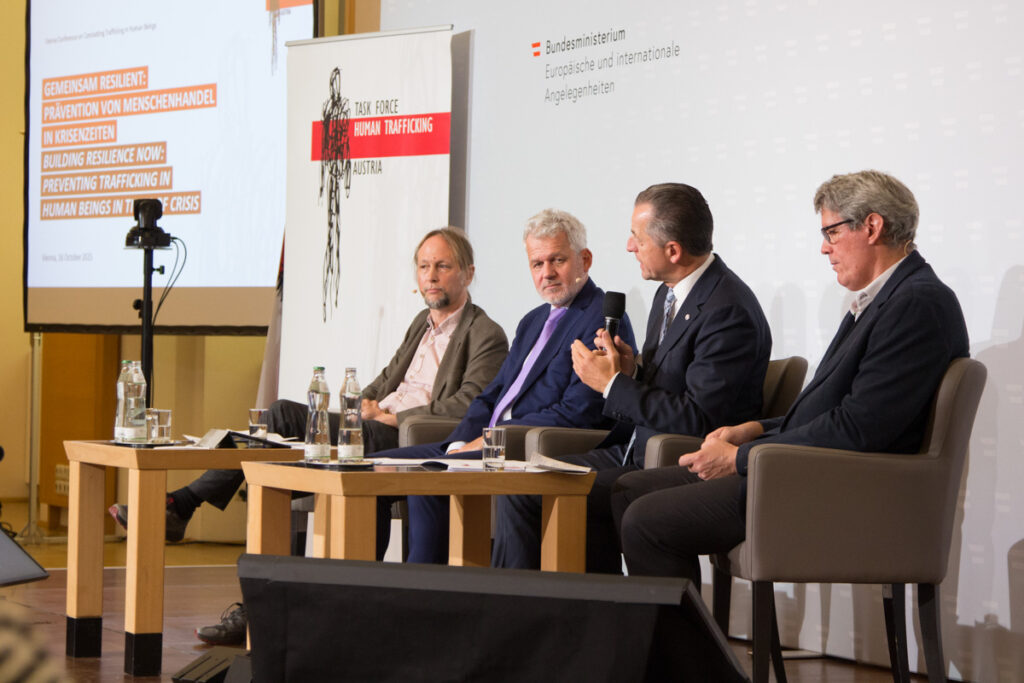
Their work involves navigating the tension between empathy and professional distance, between legal precision and human stress. Constant contact with traumatised individuals, confrontation with violence and injustice, and the pressure to act quickly and correctly under often difficult conditions leave their mark. Resilience and inter-institutional cooperation thus become central prerequisites not only for effectively protecting those affected, but also for maintaining one’s own mental health and ability to act.
In the context of preventing human trafficking, resilience thus takes on a double meaning: on the one hand, it refers to the individual strength of victims and helpers to cope with extreme stress; on the other hand, it refers to the structural resilience of institutions and networks that must maintain and further develop protective mechanisms in times of crisis – such as during conflicts, pandemics or economic emergencies.
The panel discussion
The conference centres around the panel discussion ‘Resilient Together: Preventing Human Trafficking in Times of Crisis’, moderated by Wolfgang Spadinger from the Austrian Foreign Ministry. High-ranking experts such as Conny Rijken (Council of Europe, GRETA), Tamara Schmidt (LEFÖ-IBF), Olga Dunebabina (La Strada Ukraine) and Ivan Marques (OAS) discuss the challenges and opportunities of promoting resilience in the global fight against human trafficking. Afterwards, an open discussion round provided an opportunity for in-depth questions and exchange with the audience.
The workshops
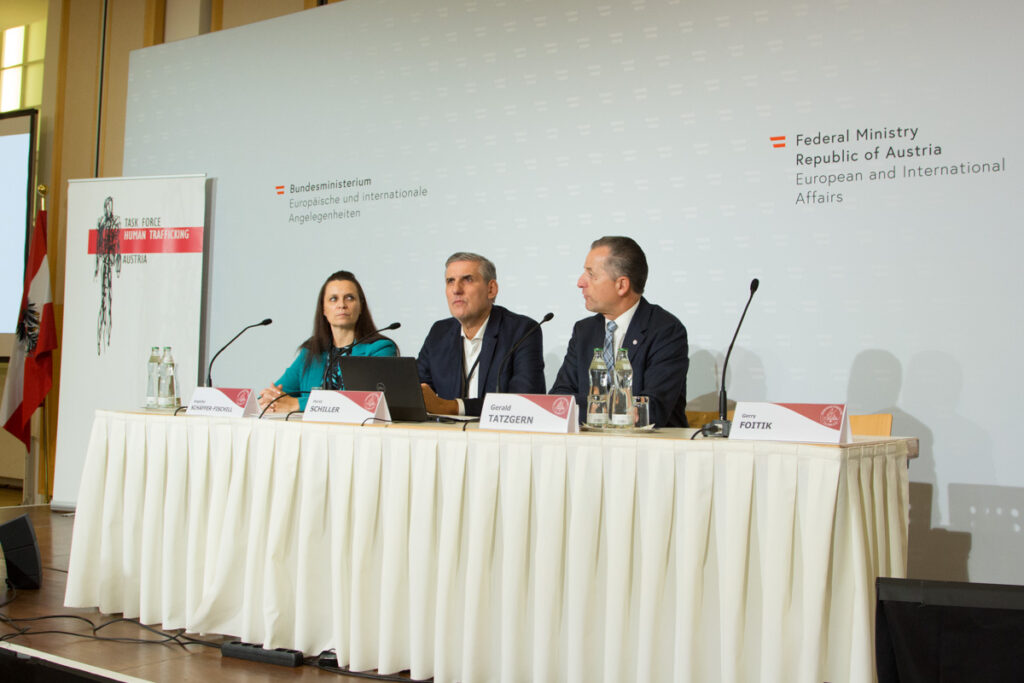
In the afternoon, three parallel workshops were held, highlighting different dimensions of vulnerability and resilience. The Federal Criminal Police Office addressed secondary traumatisation among law enforcement agencies. ECPAT Austria, the Ludwig Boltzmann Institute for Fundamental and Human Rights and IOM examined the situation of children from crisis regions. Finally, the workshop by LEFÖ-IBF and MEN VIA showed how vulnerability can give rise to new strength.
Workshop No. 1, ‘Invisible Vulnerabilities: Secondary Traumatisation in Law Enforcement Agencies’, led by the Federal Criminal Police Office, addressed an often overlooked aspect of combating human trafficking: the psychological strain on investigators.
Due to their intensive contact with traumatised victims and constant exposure to cases of violence, exploitation and abuse, professionals are also at high risk of secondary traumatisation – a form of psychological exhaustion resulting from empathic involvement in the suffering of others. The workshop therefore addressed preventive measures, institutional support systems and strategies for promoting psychological resilience in everyday official work.
Interest in this topic was exceptionally high, highlighting the relevance and urgency of an in-depth discussion. Led by Gerald Tatzgern, head of the Central Office for Combating Human Trafficking and Smuggling at the Federal Criminal Police Office, a panel discussion followed, providing participants with authentic insights into investigative work. It became clear how long and often arduous the work of civil servants is in trying to solve complex cases of exploitation and human trafficking. Tatzgern and his team described the emotional and structural challenges of this work – from the laborious process of gathering evidence and close cooperation with international partners to the psychological strain of confronting human suffering.
The discussion made it clear that resilience in this field is not only an individual skill, but an institutional necessity in order to ensure sustainable investigative work and effective victim protection.
Step by step, this also opens up space for police officers to seek support for themselves – an aspect that has long been taboo in the official environment. After all, what does it do to the psyche when officers are confronted daily with images, stories and realities that usually remain hidden from society? Such impressions leave their mark, even if they are dealt with professionally, and highlight how important it is to embed structures of mindfulness and mental health care within law enforcement agencies in a sustainable manner.
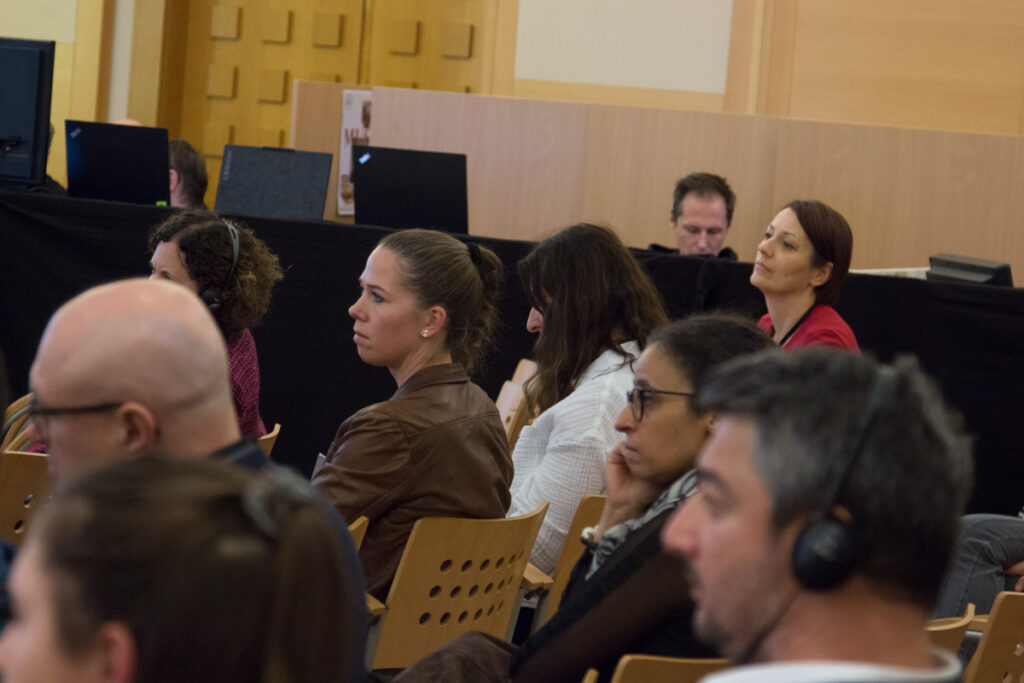
Why we at HFTF are involved
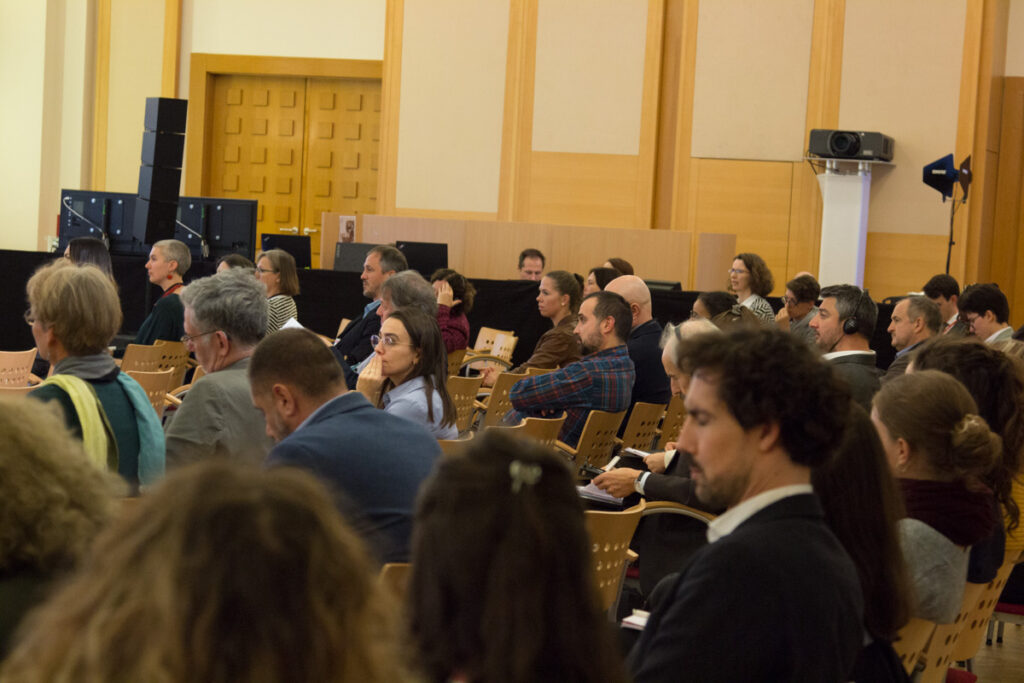
Our participation in the conference underlines our commitment to understanding and combating the complex dimensions of human trafficking and exploitation in a holistic manner – both from the perspective of those affected and those who work against these crimes on a daily basis. This became particularly clear in the example of a recently dismantled human trafficking ring in Ischgl (Landeck county): A network of 28 suspects is alleged to have lured a total of 45 women from Colombia to Austria between May 2021 and August 2024 and forced them into prostitution.
Our chairwoman Andrea Staudenherz was interviewed on television as an expert on exploitation – proof that persistent awareness-raising and networking pays off. Because only when clients and society know about HFTF can those affected find their way to us and we can actively help them!
To continue this work, we need a strong, active network, which we at Hope for the Future are working to expand every day. However, in order to continue this important work in the long term, we also rely on financial support. Only with sufficient financial resources can we provide professional support to those affected, raise awareness and further strengthen our networks in order to combat human trafficking in the long term.
In addition to our practical work, we also contribute our expertise to political and social discourse: we question existing structures and legal frameworks, especially where necessary reforms have not yet been implemented, and advocate for their further development. At the same time, we actively seek dialogue with authorities, specialist organisations and civil society in order to jointly develop viable solutions and raise awareness of the complex realities of exploitation and human trafficking.
The conclusion
To conclude the conference, Diane Schmitt, EU Anti-Trafficking Coordinator, made an urgent plea for words to finally be followed by action. She emphasised that the new Directive (EU) 2024/1712, which entered into force on July 14th 2024, was a decisive step towards strengthening the European legal framework in the fight against human trafficking. The directive supplements the existing provisions of (EU) 2011/36 and responds to new challenges, in particular the increased use of digital communication channels for exploitation and recruitment. Member States must transpose the new rules into national law by July 15th 2026. Particularly noteworthy are the expanded criminal offences, which now also include exploitation through surrogacy, forced marriage and illegal adoption. According to the Federal Criminal Police Office, in 2023 all known victims of forced marriage were women and girls – more than two-thirds of them children and adolescents. Schmitt’s words made it clear that legal adjustments alone are not enough: consistent implementation, awareness-raising and coordinated cooperation are needed to effectively combat human trafficking in all its forms.
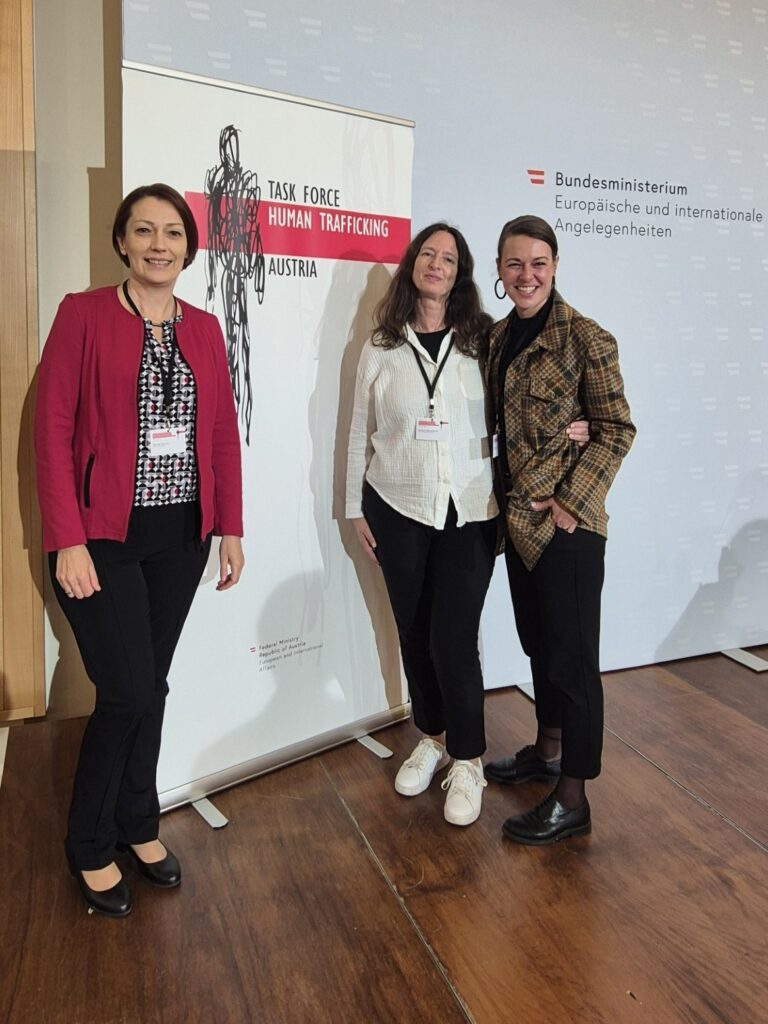
Translated by Anna Smith
#HFTF #ViennaConferenceonCombattingTraffickinginHumanBeings #BKA #NGO #diplomatischeAkademie #ViennaConference2025 #AgainstHumanTrafficking #GegenMenschenhandel #EndExploitation #EndTrafficking #HopeForTheFuture #Österreich
